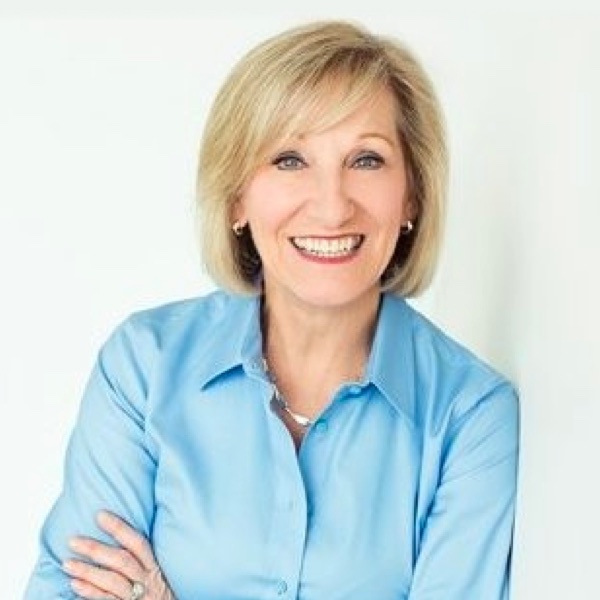Team Management
For advisor use only. Not for use with investors.
Many financial professionals these days are trying to reach women. Elisabeth Cullington and Janet Acheatel may have built the success model with Women and Wealth, a specialty practice that has helped grow HoyleCohen Wealth Management, their San Diego-based registered investment advisor firm, to more than US$2 billion* in assets under management.
Acheatel and Cullington describe their “for women, by women” approach to helping clients tackle life transitions, such as selling a business, going through a divorce, retiring or being recently widowed. The team also shares their “clone the client” process for acquiring new business, along with specific steps you can take to acquire and work more effectively with women clients.
Women and wealth
Cullington and Acheatel joined forces about 10 years ago. Cullington had been with HoyleCohen since 2008, when the firm acquired her practice. At the time, HoyleCohen was a US$350 million firm. Acheatel was a retired institutional portfolio manager when she was drawn back into the workforce to join Cullington and the practice, driven by a mission to help surviving spouses and other women going through tough transitions.
“The overarching theme of the practice is women who have been facing a life event,” says Cullington. That life event could be getting ready to sell a business, planning to retire, going through a divorce, or becoming a widow. Women in these situations may benefit from working with an advisor who can clarify “the magnitude of their financial picture” and help them understand what plans they need to make. Cullington and Acheatel strive to paint the picture of what life will look like after this life-changing event. “And that empowers them to understand what aspects that they actually need to negotiate to make their life work on a go-forward basis,” says Cullington.
The power of authenticity
The firm has a reputation for authenticity, which comes from listening to clients, seeing things from their perspectives, and understanding what they care about. “It's not a return on investment, but a return to living the life that she loves living,” says Acheatel. “And to frame the work that you're doing on her behalf in those terms just builds that trust and relationship. And we know women who have that with their advisors tend to be very long-term clients, and also refer others to you. All good stuff when you're building a business.”
“We know generally that women feel underserved. They feel undervalued. They don't know who to trust,” says Acheatel. “So, we spend a lot of time upfront, developing the connection with them. And again, that comes back to being willing to listen. What does this woman want? What keeps her up at night? What worries her? Those are the kind of questions that we'll spend a lot of time on right upfront on.”
Working with women
“We were early to the game” working with women, says Cullington. But there is a huge opportunity for other advisors to develop similar specialties. “Because the amount of money that's going to be transferring hands from 2020 to 2030, I believe, is over US$30 trillion worth of money. And those people who are on the bandwagon early to develop the practice, understand how they're going to educate the public, and educate their clients and really take a genuine interest in this particular market of women [have] a huge opportunity to really make a difference in a lot of people's lives.”
Acheatel points out that among single women and married women, 90% say gender is not important when it comes to their financial advisor. “And yet, the research also tells us that 70% of widows will change their advisor within a year of their husband passing away, even for long-term relationships with their advisor,” she says. “So there are definitely some unique challenges.”
One challenge is advisors not making the connection with the woman when she is still part of the couple. Often, it’s easier to focus on the alpha male. “If the woman's quiet in the meeting, they just assume that maybe she doesn't want to engage. Well, maybe she needs to be asked,” Acheatel says. “You know, you've got to be willing to put that effort into developing that relationship, that connection, that level of trust.” She also recommends that advisors dealing with women would do well to:
- Ask to have both the husband and wife attend client meetings
- Respond to her calls and include her on the email
- Don’t tell her she doesn’t need to worry; tell her what she needs to hear
- Make eye contact
- Listen to her story and ask questions
Clone the client
The ladies have dubbed their growth strategy “clone the client,” and the process starts with identifying their absolute best clients — the people they enjoy working with. Understand who those people are, and then interview those clients to learn what drew them to your practice. Cullington suggests asking, “I'm curious as to what value do you believe that we bring to the table? Well, what could we do different? How could we improve on the value? What are we missing? I don't know how else to find people like you. Where would I have found you in other forums?”
Diversity leaders
Aside from the separate practice uniquely focused on women, the firm distinguishes itself with a focus on diversity that permeates the culture. “When I came on board in 2008, most of the women were in support roles. Today, most of the advisors are women … there is no glass ceiling here. And when we carry that out into the public, people are just automatically attracted to that. It helps to make us a little bit more distinct in the marketplace,” says Cullington.
The firm also nurtures young talent. “We love it because they challenge us,” Acheatel says. “Twenty-year-olds think about their careers differently than what Elisabeth and I did in our 20s and 30s and growing up. They want a lot more balance in their life.” They are finding great people from local universities like San Diego State, which has a financial planning certification and degree program. “We're getting really talented, passionate young people to come in, start as interns, and then we can determine if they're a good fit and hire them from there. And it's been wonderful for our group.”
They have two pieces of advice for anyone starting out in the industry today. First, says Cullington, “grab ahold of a mentor or two and really spend the time to let them teach you and have them help you.”
Next, says Acheatel, make women a part of your practice. “It'll require that you set aside stereotypes. Focus on individual needs of each woman, and men, of course. And become an outstanding listener and teacher,” she says. “Mastering those skills is what makes a great investment advisor, regardless of your gender, and no matter what your client's gender is.”
Related content
-
Practice Management
-
Marketing & Client Acquisition
*As of November 2020.


